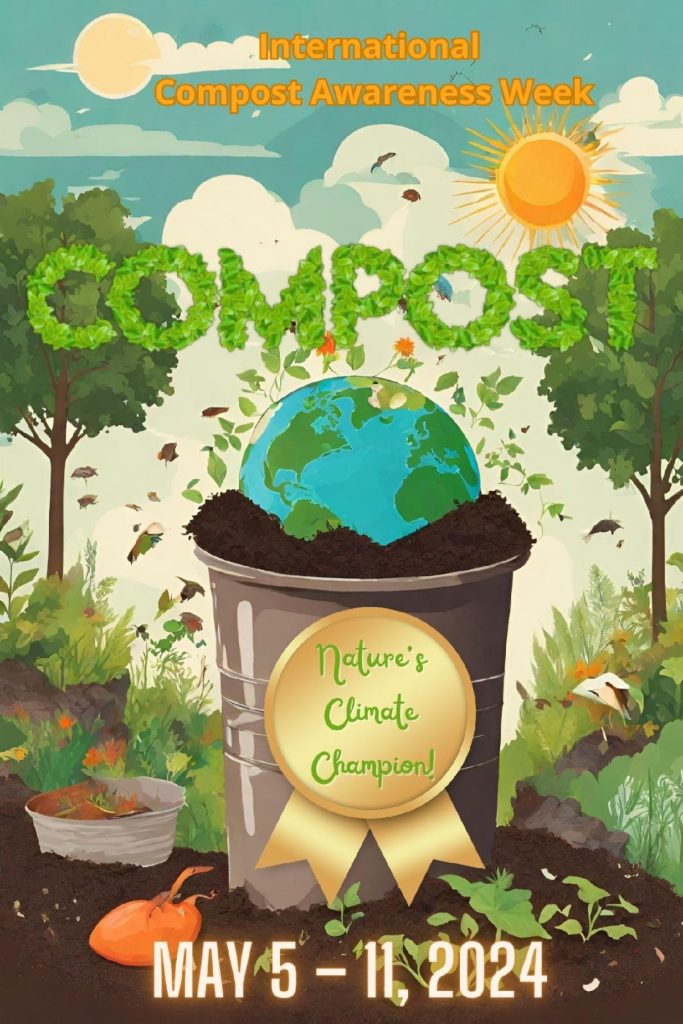
International Compost Awareness Week (ICAW) is celebrated annually during the first full week of May and is a time to learn more about composting organic wastes (e.g. landscape wastes and food scraps) as part of fostering healthier soil and reducing greenhouse gas (GHG) emissions. According to the U.S. Environmental Protection Agency (EPA), food waste is the “most common material sent to landfills nationwide, comprising 24.1 percent of municipal solid waste. When yard trimmings, wood and paper/paperboard are added to food, these organic materials comprise 51.4 percent of municipal solid waste in landfills.” Within landfills, organic materials decompose without the presence of oxygen (anaerobically), resulting in the generation of methane, which is a potent GHG. Reducing the generation of organic wastes and composting them when their generation can’t be avoided are important strategies for combating climate change. Hence the theme of this year’s ICAW: “COMPOST…Nature’s Climate Champion!”
According to the Compost Research & Education Foundation, this year’s theme highlights the role compost plays in fighting climate change. Besides reducing methane generation associated with landfilling organics, returning composted material to the soil ‘serves as a “carbon bank,” helping to store carbon thereby removing it from the atmosphere.’ Enriching soil with compost also reduces the use of synthetic fertilizers, thereby reducing the emissions associated with fertilizer manufacturing. Using compost can also increase our resilience to climate change impacts such as drought or extreme weather. For example, compost increases the capacity of soil to retain moisture, and compost makes soil more resistant to erosion by improving water infiltration, binding soil particles together, and slowing the flow of water through the soil. Thus, stormwater runoff is decreased.
For a list of in-person and virtual events to learn more about and celebrate composting, check out the Illinois Food Scrap & Composting Coalition (IFSCC) ICAW 2024 web page. New events are being added to the page daily, so check back often. If your organization is hosting a relevant event that you’d like to see promoted via IFSCC, submit information via this online form.
For information on getting started with home composting, check out the University of Illinois Extension Composting web pages. Extension also has great information on vermicomposting (using worms to process your organic waste), compost bins, troubleshooting, and answers to common questions.
For suggested children’s books related to composting and soil health, see the IFSCC’s curated list.
The IFSCC website also provides composting information for local governments and a recognition program for organizations and businesses that compost (on-site or via commercial composting services). You can also search for compost pick-up and processing services (available in limited areas of IL).
Happy composting!

